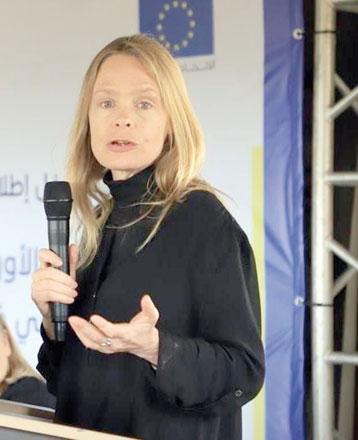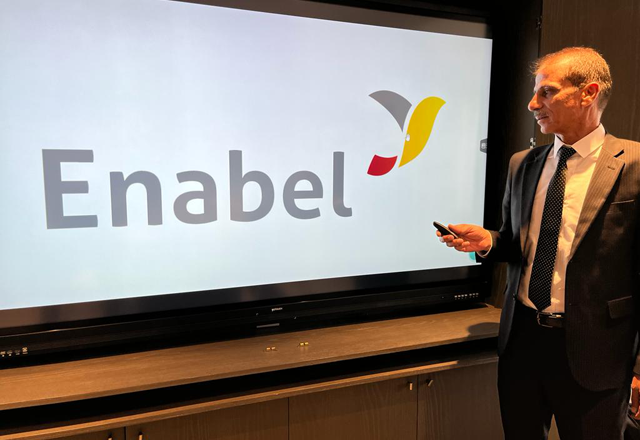You are here
Enabel holds workshop on developing occupational standards for control systems.
By Maria Weldali - Sep 06,2022 - Last updated at Sep 06,2022
AMMAN — As part of the second phase of the Qudra Programme titled “Resilience for refugees, IDPs, returnees and host communities in response to the protected Syrian and Iraqi crises”, the Belgian Development Agency (Enabel) on Tuesday held a workshop to develop occupational standards for control systems.
“The workshop seeks to develop occupational standards for control systems in various sectors,” the programme’s skills development expert and acting intervention manager, Zaid Al Qaisi, told The Jordan Times in an interview on Tuesday.
The workshop was attended by various sector councils, the Technical and Vocational Skills Development Commission (TVSDC), representatives from the private sector, and the National Company for Training and Employment, he added.
“The outcomes of this workshop would be a step forward for the development process of occupational standards,” Qaisi said.
According to Qaisi, the programme seeks to provide demand-driven vocational training to 2,000 vulnerable Jordanian youth and Syrian refugees, noting that 40 per cent of the targeted individuals are females and 60 per cent are males.
He added that 65 per cent of beneficiaries are Jordanians and 35 per cent are Syrian refugees.
“1,800 participants have either finished or are receiving their training, and we expect that all training activities will be completed by the end of the year,” said Qaisi.
Enabel Jordan, under Qudra II programme, enhances employment opportunities by offering its expertise in the Technical and Vocational Education and Training (TVET) sector, according to the Enabel website, which detailed the programme’s focus on providing Syrian refugees, vulnerable Jordanian youth, and women with equal vocational training opportunities.
In its second phase (2019-2022), the programme constitutes a multi-partnered initiative to provide a European response which offers the combined strength and capacities of the European Union (EU) and various agencies of its member states.
Funded by the EU, the German Government, and the Spanish Agency for International Development Cooperation (AECID), the programme is currently implemented by five European agencies including: AECID, Enabel, Expertise France, the German Agency for International Cooperation (GIZ) and Hungarian Interchurch Aid (HIA).
According to a statement made available to The Jordan Times, the programme seeks to strengthen the resilience of refugees, internally displaced people (IDPs), returnees and host communities through education, employment promotion, local governmental institutions and civil society organisations.
Related Articles
AMMAN — Acquiring digital, vocational and technical skills is key for vulnerable Jordanian youth and Syrian refugees to enter the labour mar
AMMAN — The Belgian Development Agency (Enabel) organised its third workshop aimed to develop the professional standards and curriculum of c
AMMAN — The Technical and Vocational Education and Training sector representatives finalised the work-based learning (WBL) module’s implemen
















